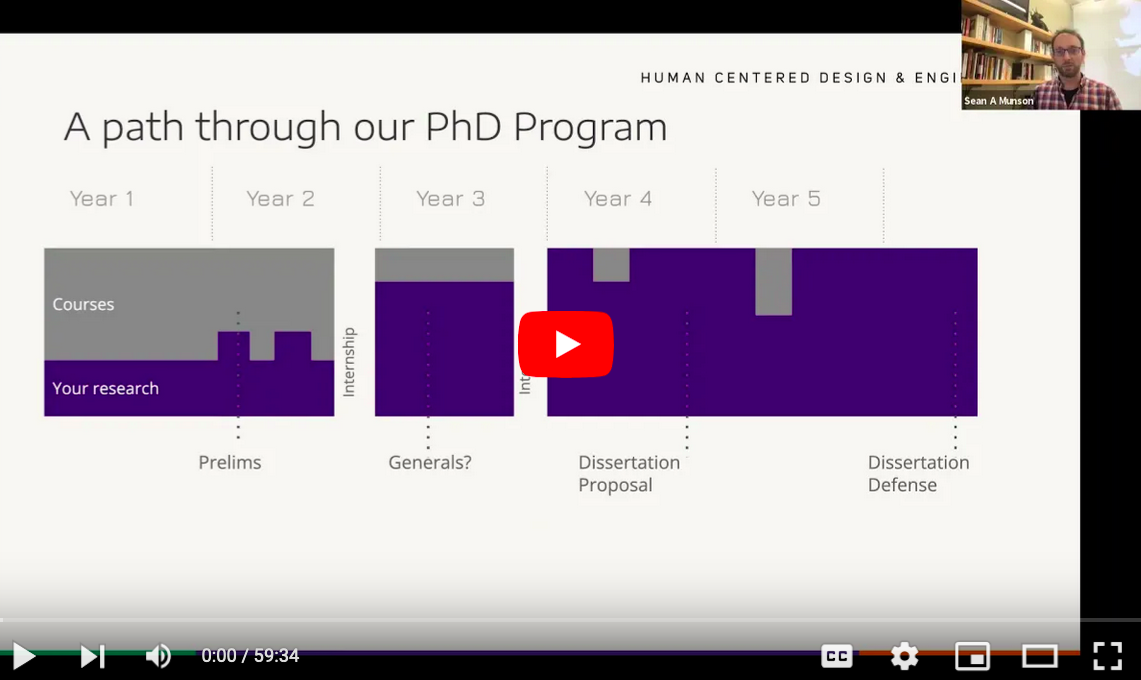The Ph.D. in Human Centered Design & Engineering at the University of Washington provides unparalleled depth and experience for students interested in studying the conception, design, implementation, evaluation, and effects of technologies.
The University is located on a beautiful campus in the heart of the city of Seattle. HCDE is housed in the College of Engineering, and benefits from the research tradition of a leading R1 research institution.
The HCDE doctoral program prepares students for careers as scholars and researchers through relevant coursework, mentorship from faculty, and collaboration with peers. Early in the program, students may explore different topics and research areas through Directed Research Groups and other independent projects. PhD students choose their dissertation adviser within their first year and begin to focus on a research area for their dissertation.
Curriculum
Students in the HCDE PhD program complete a minimum of 90 credits of coursework and research as they progress toward degree completion. The first two years are primarily focused on academic course work as the foundation for ensuing research. The remainder of the program is focused on extensive research and program milestones.
Admissions
Admissions to HCDE’s PhD program will be suspended for the Autumn 2026 cycle due to financial constraints and uncertainty around federal and state funding that supports HCDE doctoral students. The next admissions cycle will be for Autumn 2027 entry, with an application deadline of December 2, 2026.
Costs & financing
Students are obligated to pay the associated tuition for courses they are enrolled in, but the department strives to fund all of its PhD students through Teaching Assistantships (TAs) and Research Assistantships (RAs).
Faculty & research
HCDE's award-winning, interdisciplinary faculty focus on six areas of research and teaching: influencing awareness, thinking, and behavior; design for emergent collaborations and organizations; low resource and underserved populations; material and embodied technologies, and ubiquitous computing; data visualization and big data; and learning in professional and technical environments.
HCDE Ph.D. information sessions
Hosted by HCDE PhD Program Director Sean Munson and Academic Services Director Kathleen Rascon, this information session is for prospective PhD students looking to apply the Department.
Get more information
Want to know more? Enter your contact information to learn more about upcoming events, program highlights and deadlines.
Email sign up